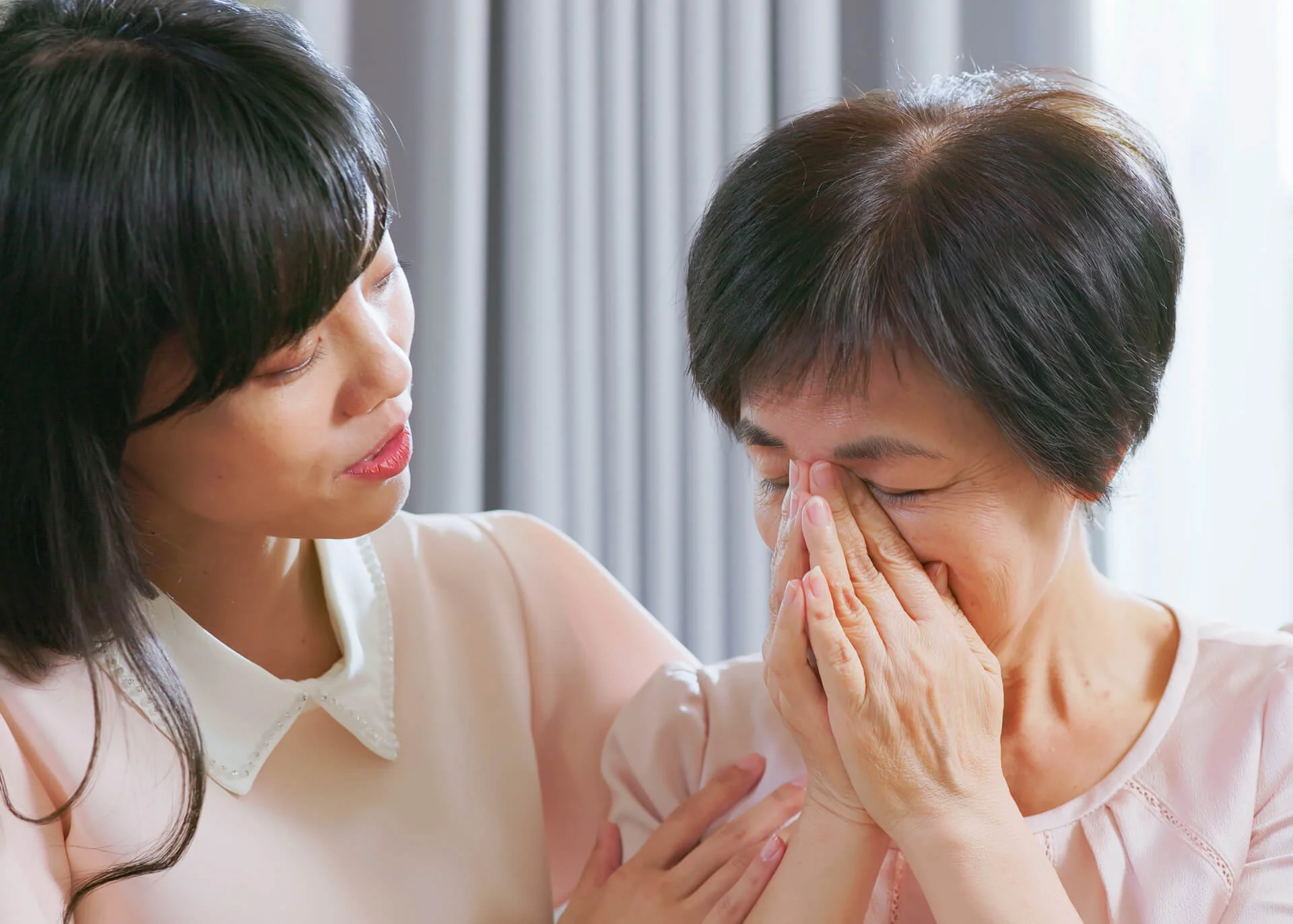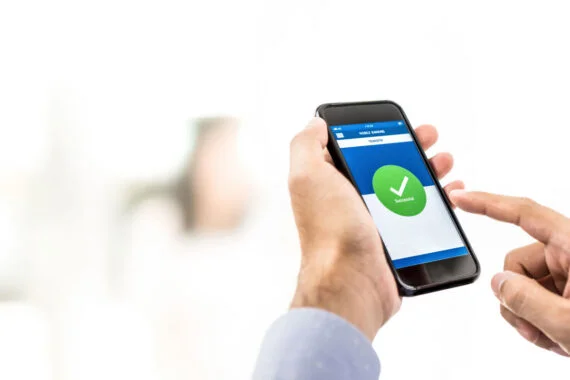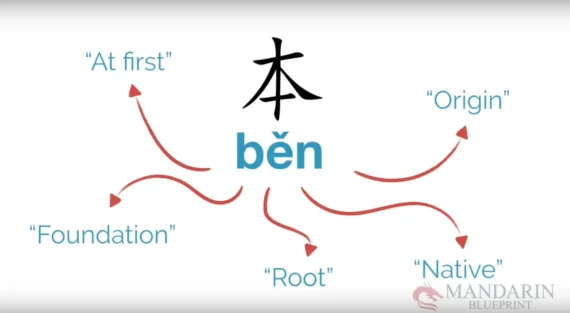How to Say Sorry in Chinese: Best Ways to Apologize Correctly

Arrived late for a meeting? Forgot your Chinese friend’s birthday? Too sick to go into the office? Knowing how to say sorry in Chinese will come in handy if you’ve done something wrong, caused embarrassment, or inconvenienced someone.
How do you say sorry in Chinese?
In English, we often refer to “sorry” or “please” as “the magic words.” We not only say sorry when we’ve made a mistake but also express our sympathy (“I’m sorry for your loss”) or get someone’s attention (“Sorry to bother you, but…”).
Knowing the only word “sorry” won’t carry you as far in Mandarin Chinese. You’ll need different forms to apologize in different situations and circumstances.
对不起 – Duìbuqǐ
The literal meaning of 对不起 duìbuqǐ is to be “unable to face” someone, to be “unworthy,” or “unable to rise to the standard.” It’s still used in this sense today, for instance:
球队输了球,大伙儿觉得对不起教练
Qiúduì shū le qiú, dàhuǒ’r juédé duìbuqǐ jiàoliàn.
The team lost and felt they’d let the coach down.
Typically, however, 对不起 means “sorry.” If you’ve done something wrong, 对不起 is the most simple phrase you can use to apologize in Chinese:
对不起,我不小心放了太多盐,味道很糟糕。
Duìbùqǐ, wǒ bù xiǎoxīn fàngle tài duō yán, wèidào hěn zāogāo.
Sorry, I put in too much salt by mistake. The food tastes terrible.
If you are genuinely sorry, you can add 真 zhēn, meaning “really:”
真对不起! 我把你家的马桶弄坏了。
Zhēn duì bu qǐ! Wǒ bǎ nǐ jiā de mǎtǒng nòng huài le.
I’m really sorry! I broke your toilet.
对不起 is a common way to say “sorry” in Chinese, but it conveys the strongest degree of apology among the words we cover. Of course, sincerity is subjective, but it’s best to use the phrase 对不起 only when you are genuinely sorry.

不好意思 – Bù hǎo yìsi (bù hǎo yìsī)
不好意思 bù hǎo yì si (sometimes pronounced bù hǎo yì sī) literally means “not good meaning” and is a difficult phrase to translate into English. Chinese speakers use 不好意思 when in an embarrassing situation, whether they feel truly embarrassed or wish to feign shyness to appear modest or polite. For example, when someone tells you how pretty you look, you can say 我都不好意思 Wǒ dōu bù hǎo yì sī, meaning “I’m embarrassed.”
The phrase 不好意思 suggests the slightest degree of concern among the words for “sorry” in Mandarin Chinese. It’s used to apologize for minor offenses or mistakes, such as when you forget something or need to change an appointment. So when you are late for a meeting or a date, you can say, 让你久等了,不好意思 Ràng nǐ jiǔ děng le, bù hǎo yìsi (“Sorry to keep you waiting”).
Additionally, 不好意思 is a polite way to get someone’s attention, similar to “Excuse me…” in English. When someone is in your way, you can ask them:
不好意思,让一下可以吗?
Bù hǎo yìsi, ràng yīxià kěyǐ ma?
Excuse me, do you mind stepping aside?
If you need to decline an invitation politely, we hope you’ll remember to say 不好意思 and give a reason before telling someone “Not this time” in Chinese.
Finally, you can place 不好意思 before a behavior you’re embarrassed about. For example, you may say:
我不好意思戴这副眼镜。
Wǒ bùhǎo yìsi dài zhè fù yǎnjìng.
I’m embarrassed to wear these glasses.
Of course, this isn’t exactly saying sorry in Chinese, but it will help you fully understand 不好意思.

抱歉 – Bàoqiàn
The word 抱 bào means “to hug,” “to hold,” or “to carry,” and 抱歉 bàoqiàn literally means “to hold regret.”
More formal than 不好意思 bù hǎoyìsi but less intense than 对不起 duìbuqǐ, 抱歉 bàoqiàn is one of the most common ways to say sorry in Mandarin Chinese. You can use this phrase in most situations, whether speaking with your boss or your best friend:
抱歉,我来得太晚了。
Bàoqiàn, wǒ lái de tài wǎn le.
I’m sorry for being late.
As 抱歉 is technically an adjective, it’s commonly coupled with Chinese adverbs of degree, such as 非常 fēicháng (我真是非常抱歉 Wǒ zhēnshi fēicháng bàoqiàn).

道歉 – Dàoqiàn
道歉 dàoqiàn is a verb meaning “to apologize.” It’s not used for saying “sorry” directly, but in sentences like this:
我得向你道歉
Wǒ děi xiàng nǐ dàoqiàn.
I need to apologize to you.
If you want to specify an apology, add the measure word 个 ge between 道 dào (“to say”) and 歉 qiàn (“apology”):
他昨天给我道了个歉。
Tā zuótiān gěi wǒ dào le ge qiàn.
He apologized to me yesterday.

How to say “It’s my fault” in Chinese
Sometimes, merely saying sorry isn’t enough. In most cultures, when you’ve screwed up, you’ll need to take responsibility for your mistakes.
If you need to apologize in Chinese, you should begin by learning how to take the blame.
是我的错 – Shì wǒ de cuò
When you’ve hurt someone’s feelings, admitting your mistake is the first step in making an apology. In Chinese, you can say 是我的错 Shì wǒde cuò (“It’s my fault”) to admit responsibility.
Add 都 dōu to emphasize that all the responsibility lies with you. For example:
抱歉,都是我的错
Bàoqiàn, dōu shì wǒde cuò
I’m sorry, it’s all my fault.

我错了 – Wǒ cuò le
我错了wǒ cuò le translates to “I was wrong.” It is less an expression of guilt than an objective statement. Use the phrase when you realize you’ve made a mistake, similar to “my bad” in American English:
抱歉,我错了。会议不是周五,是周四。
Bàoqiàn, wǒ cuò le. Huìyì bùshì zhōuwǔ, shì zhōusì.
Sorry, my bad. The meeting isn’t Friday; it’s Thursday.

是我不对 – Shì wǒ bùduì
不对 bùduì literally means “not correct.” Therefore, if you want to make up with someone after an argument, begin your apology in Chinese with 是我不对 shì wǒ bù duì (“I was wrong”).
By admitting your fault, you allow the other person to save face and offer a path to reconciliation and forgiveness:
亲爱的,是我不对,对不起。
Qīn’àide, shì wǒ bù duì, duìbùqǐ.
Darling, I was wrong. I’m sorry.

我不是故意的 – Wǒ bùshì gùyì de
The phrase 我不是故意的 Wǒ bùshì gùyì de (“I didn’t do it on purpose”) might sound less like taking the blame than making an excuse. Yet, even if something wasn’t intentional, it can still be your fault.
If you want to apologize in Chinese for something accidental, you can say:
对不起,我不是故意的
Duìbuqǐ, wǒ bùshì gùyì de.
Sorry, I didn’t do it on purpose.

Asking for forgiveness in Chinese
So, you make your apology, stand up like a man (or woman) and take the blame for your mistakes. Next up, you’ll want to ask someone to forgive you in Chinese.
你能原谅我吗 – Nǐ néng yuánliàng wǒ ma
If you need to ask for forgiveness, 原谅 yuánliàng (“to forgive”) is the Chinese word to remember. 你能原谅我吗 Nǐ néng yuánliàng wǒ ma translates as “Are you able to forgive me?” or “Will you forgive me?”
原谅 is a powerful word in Chinese, used to express a strong desire to be forgiven.
You are unlikely to see Chinese people beg for forgiveness after stepping on someone’s toe. However, in some situations, you can use 请原谅 qǐng yuánliàng (“Please forgive me”) to make a pre-emptive apology, like saying “Pardon me” in English. For example:
我来晚了,请原谅
Wǒ lái wǎn le, qǐng yuánliàng.
Please forgive me for being late.

Offering a formal apology in Chinese
You’ve already learned how to say sorry in Chinese, admit your mistakes, and ask for forgiveness. Now, let’s look at other phrases used to say sorry in Mandarin and offer apologies in more formal situations, such as when talking to your teacher, your boss, or another authority figure.
我跟你赔礼道歉 – Wǒ gēn nǐ péilǐdàoqiàn
In Chinese, 赔礼道歉 péilǐdàoqiàn is a set phrase that means “to make a formal apology.” This is a sincere way to apologize in Chinese, used mainly in formal situations and only when your actions have had a severe negative effect.
Suppose your failings at work led to the company losing an important contract or client. In that case, you might apologize by saying, 我跟你赔礼道歉 wǒ gēn nǐ péilǐdàoqiàn. It’s like saying, “Let me offer my sincere apologies” in English.

是我的责任 – Shì wǒ de zérèn
When you are the guilty party and want to offer an apology in Chinese, you’ll need to admit your responsibility, 责任 zérèn, for your actions.
In a formal situation, you can say 是我的责任 Shì wǒ de zérèn (“This is my responsibility”). This way, you are fully owning the blame for whatever is wrong.
下次不会再发生了 – Xiàcì bùhuì zài fāshēng le
Finally, you can end your apologies by promising not to make the same mistake again. Think of 下次不会再发生了 Xiàcì bùhuì zài fāshēng le (“It won’t happen again”) as a set phrase to use whenever you sincerely apologize.

Expressing regret, sympathy, and condolences
In English, we say sorry for everything, apologizing even when it’s clearly not our fault. Of course, we only mean to offer comfort, but as you learn Chinese, you’ll discover that Chinese people don’t really understand this use of “sorry.” What are you apologizing for if you didn’t do anything wrong?
In China, people rarely use words like 对不起 duìbuqǐ or 抱歉 bàoqiàn to talk about being sad or being “sorry to hear” something. Therefore, it’s worth taking a moment to learn some of the other expressions commonly translated into English as “sorry.”
我替他们感到难过 – Wǒ tì tāmen gǎndào nánguò
The Chinese character 替 tì means to take the place of someone or something or to act on someone’s behalf, as in 代替 dàitì (“to replace,” “to substitute for”).
You can also use 替 in combination with 感到 gǎndào (“to feel”) to talk about what you feel on someone’s behalf. For example, if you want to express sympathy for someone, you can say, 我替他们感到难过 Wǒ tì tāmen gǎndào nánguò, which literally means “I feel sad on their behalf.” It’s like saying, “I feel sorry for them” in English.

遗憾 – Yíhàn
When you want to express regret in Chinese, whether for declining an invitation, missing an opportunity or for being the bearer of bad news, 遗憾 yíhàn (“regret,” “regretful”) is the word to use:
非常遗憾,我不能接受你的邀请。
Fēicháng yíhàn, wǒ bùnéng jiēshòu nǐ de yāoqǐng.
I’m very sorry that I won’t be able to accept your invitation.
节哀顺变 – Jié’āishùnbiàn
In the Chinese language, it sounds strange to offer support to a grieving family member or friend by saying, “I’m sorry for your loss.” Sorry? For what, exactly? After all, what happened is tragic, but you didn’t do anything—or did you? And if not, why are you apologizing?
Instead, when expressing condolences in Chinese culture, people offer words of encouragement or extend a promise to help. It might come across as a little harsh in English (the literal translation is “restrain grief and accept fate”), but 节哀顺变 jié’āishùnbiàn is a popular phrase meant to offer hope.

Asking for help in the Chinese language
Another situation where we often say sorry in English is when we want to ask for a favor or get someone’s attention. Although native speakers don’t tend to say “sorry” in these situations, the Chinese language has some nifty tricks to stand for such English expressions as “Sorry to bother you.”
打扰一下 – Dǎrǎo yīxià
The phrase 打扰 dǎrǎo means “to disturb,” but you can think of 打扰一下 dǎrǎo yīxià as a set phrase, which means “sorry to disturb you.” Use this phrase when you want to enter someone’s room or are stuck on something and need help at the office.
In English, it often translates simply as “Excuse me,” as in the following example:
打扰一下,请问最近的厕所在哪儿?
Dǎrǎo yīxià, qǐngwèn zuìjìn de cèsuǒ zài nǎ’er?
Excuse me, where is the nearest toilet?

麻烦你 – Máfan nǐ
In daily life, you’ll hear native Chinese speakers use the expression 麻烦 máfan (“troublesome,” “annoying”). It expresses any minor inconvenience, sacrifice, or impediment to their fun.
Use 麻烦你 máfan nǐ whenever you want to apologize for bothering someone, especially when they have gone out of their way to help you. For example, if you often have to ask the same person for help, you might say:
老来麻烦你,真是不好
Lǎo lái máfan nín, zhēn shì bùhǎo.
I’m sorry to trouble you so often.

How to respond to an apology in Chinese
By now, you know plenty of ways to say sorry in Chinese. But what if you are not the one at fault? How should you respond when someone says sorry to you?
All these responses can be used in both formal and casual situations.
没关系 – Méiguānxi
关系 Guānxi is an essential concept in Chinese culture. The word 关系 encompasses everything from “relations” and “relationships” to “connections” and “areas of concern.”
If someone apologizes to you, 没关系 méiguānxi is a typical response to give in Chinese, meaning “it doesn’t matter,” “don’t worry about it,” or “never mind.”

没事儿 – Méishì’r
If you know how to say “You are welcome” in Chinese, you’ll already be familiar with 没事儿 méishì’r. It is a typical response that means “it’s nothing” or “it’s not important.” When you apologize in Chinese, a word like 没事儿 conveys the idea that it’s no big deal.
别担心 – Bié dānxīn
If whoever is apologizing to you appears overly worried or concerned, you can respond with 别担心 bié dānxīn, which means “don’t worry.”
When your guest begins apologizing profusely after spilling a glass of water, you might say:
别担心,没什么大不了的
Bié dānxīn, méishénme dàbuliǎo de.
Don’t worry, it’s no big deal.
It’s only human that we get mad sometimes, lose control of our emotions and, without being careful, fall into arguments with our parents, children, or spouse. It’s a kind of self-defense. But if you’ve caused your friends to feel bad or made a loved one cry, saying sorry is the first step on a long journey towards restoring harmony to the relationship.








